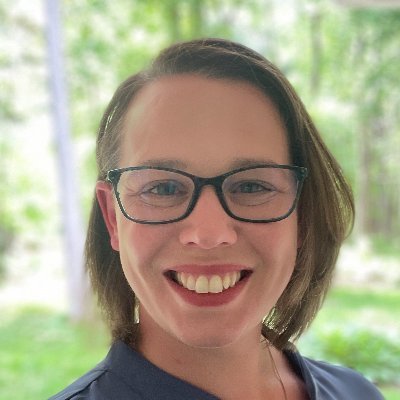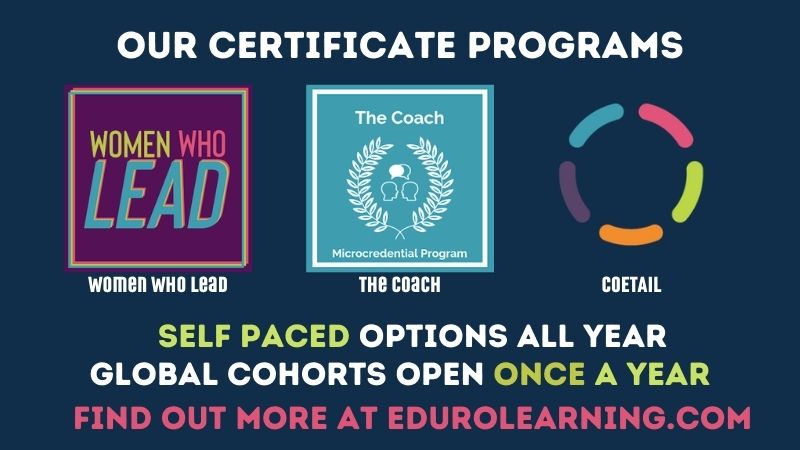In this #coachbetter episode, Kim talks with Sarah Gilmore, co-author of Integrating Technology: A School-Wide Framework to Enhance Learning. Like many of us, Sarah has been doing a lot of remote teaching and coaching during the COVID-19 pandemic, so they focused their conversation on how that has been both an opportunity and a challenge. They talk about the ways that technology can enable us to connect well beyond our physical borders and how we can leverage the tools that many students and teachers are currently using to build lasting learning networks.
Subscribe to #coachbetter via your favorite Podcast Player!
Featured Guest

Bonus! Watch the Spotlight Version on YouTube!
Show Notes
About our Guest
Teacher for 13 years, currently in the US, previously in Germany. Co-author of Integrating Technology: a Holistic Framework for Schools, and co-founder of LittleKeyLearning.
From Scotland in the UK, husband is American. Started teaching there. I don’t have any special tech qualifications, I studied classical music, and taught primary. Taught early years, and then jumped up to grade 5 at BIS, next year, moved into tech integration. Real leap for me, because I didn’t have any credentials or experience.
Transitioned out of school, running my own business. Mostly running online courses, through Chapters Int’l or my own business. Working with India, Asia, Europe, South America. Almost nothing in the US. So much need for the coaching over here, but it’s not getting out into the US environment. Teachers in the US are really overwhelmed. Don’t have the headspace for taking on PD. 4 week courses.
Most PD models were 2-day workshops, so exciting when you’re there, but then you go back to your classroom and you can’t do anything. In many ways remote coaching is far superior. Live session once a week for 4 weeks, flipped classroom, discussion, application. Easier to embed in what they’re doing.
How do you make personal connections with participants?
A little easier, less of coming from a place of “there’s a problem” – working in schools sometimes we have to change mindset away from problem and to solutions. When people are coming to courses, they are seeking solutions. Slightly different relationship, because people perceive me as the expert.
Building the relationships with courses of 30 people from 8 different countries. We try to make a lot of space for conversation, most of the time is spent in discussion. Learning to teach teachers remotely has been about learning not to lecture. Learning how to give content without me talking. Using the time that we have together, to do things that we would do in the classroom.
More listening than talking, learning journal. Google Classroom, slides. Individual feedback. They know that we’re really seeing what we’re doing.
What are some other ways to get content across so that when you’re together you’re really together?
Breakout rooms
Only use tools with teachers that I would recommend they use with children. A big reason why teachers think it’s hard to teach with tech is because they’ve never learned with tech. They have to get that experience somewhere. Narrow but deep: 3 or 4 tools a lot: Padlet, Google, Flipboard, MentiMeter. Thinking routines. As much as possible do the work together.
Getting a better understanding of what the rest of the world looks like in terms of what schools are doing.
The importance of a PLN
Global awareness is a big part of what we think is important about learning for kids, even in one single school, but we often don’t look beyond our individual classrooms. Sometimes it can be challenging to invite other teachers into our space. Observation as a terrifying thing, rather than an opportunity to learn. Always stressful to have someone in your space.
So important for us to live that openness of learning for our own professional growth. It’s particularly hard to look outside of your own space, but it’s critical, can allow you to “see the future
It’s hard for teachers to move beyond that space, of “this isn’t fair,” to the space that maybe I can still learn something from you and you can learn something from me.
Trying to find the commonality between our experiences is the most important part. If we’re aware of our privilege we can find the commonality. The things that matter in teaching should be shared.
Coaching Conversations
How are you asking questions? How are you getting kids thinking? How are you making connections between concept and content? Can ask those questions of people in widely different circumstances.. Have you figured out a way to have kids collaborate? Learning to find these questions that everyone can relate to, even if they can’t that’s an interesting conversation.
What are the questions you’re asking?
Mindset: how you feel about tech in learning and why do you feel that way? We’re human beings who are complex, with a lifetime of experience and ideas. Sometimes we think we can leave all that at the door, but you’re still a person who brings your uniqueness to the classroom.
Technology can be particularly divisive. Teachers can feel very strongly about it, but don’t necessarily acknowledge it, until they have to. I like to explore that mindset. Where it is and where it comes from. Exploring those personal and professional experiences that form who you are. If we don’t take the space and time in schools to ask how teachers feel about it, and what can I as a leader, do about that. The mindset that teachers bring to their teaching will influence their success. And that mindset is reasonable, and needs to be acknowledged.
Have you had any experience learning in the way you’re being asked to teach?
What has been a turning point for the educators you’re working with?
Teachers often feel wildly uncomfortable with having things being assigned to them, using the tools this way, receiving feedback. The recognize that this discomfort is growth. They’re feeling it for the first time, they never had that change, as a student. That is one of the most effective powerful ways to get them in that space. Learning in the way we’re expecting them to teach.
When you’re teaching with tech and it goes wrong, how does it feel? How do you feel when you go on a field trip and it rains? How do you feel when you’ve planned this great lesson, and the students get pulled out for an assembly or game, etc? What is it about the experience of tech that is so triggering emotionally that you feel it reflects on you as an educator, in a way that other challenges don’t?
At what point do you say we’re not doing tech support anymore. At what point do we expect you to google it. We need to explore “why are we still here?” We need to take it all out of the box and lay it out and unpack it. Things I can’t change, things I can. What would it take for you to feel safe?
What are the questions you ask that work well?
It’s not a quick process. Goes in phases. Introduce the idea that you have a mindset. Your mindset is a product of your experiences, and your mindset is valid. However, we’re all here as teachers and there are expectations that we have to meet. So we’re going to unpack your mindset. Gallery walk to Unpack (big paper): Personal experiences, Professional experiences, Beliefs around tech. Typical experiences are pretty limited.
Did you use tech growing up? What does tech look like in your life? Do your children use tech? Do you trust the tech in the school? Do you have sufficient resources? Do the resources you have support the curriculum you’re expected to teach? What happens when you ask for support? Is play on a screen as good as play outside? Is reading on a tablet as good as reading a book?
Unpacking unconscious bias.
Think about your mindset: give it a word: what is your mindset? Put it on a continuum on padlet or a big paper. Choose an adjective that describes what your mindset is. Find a gif that communicates that and place it on the continuum (positive to negative) Reflect on your “word”: Which specific elements of your experience are the most important in building your mindset today. Mindmap of this is where I’m at. From there, what can I affect. What can I say “this is holding back my practice?” and what can I do about that?
Give it a whole two hours: a morning PD session and really delve into it. Ask those guiding open questions. They get the most out of that versus listening to you. Talking to each other helps them feel a lot safer. Take away the shame and secrecy.






Recent Comments